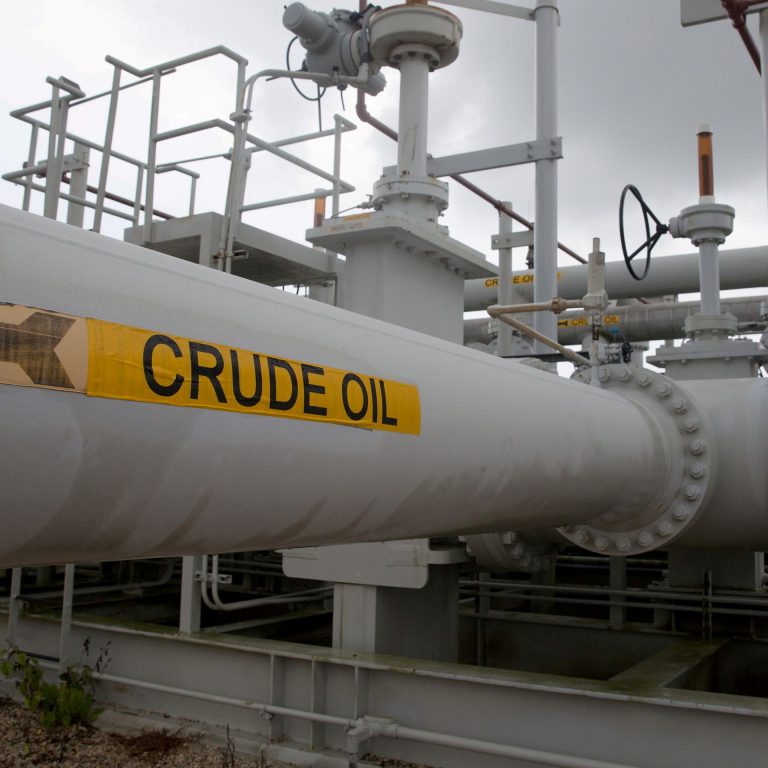
The incessant oil theft in Nigeria no doubt took a toll on the Nation’s economy this year 2022, which calls for the federal government of Nigeria to take decisive action to curb the menace of oil theft in the country.
The case of oil theft has posed so many implications to Nigeria and its economy, which has led to the massive loss of revenue that would have been used to support the country’s fiscal deficits and budget implementation.
Reports disclose that Nigeria loses about 100,000 barrels per day at $100 per barrel, which is equivalent to $10 million per day that is being stolen, which has resulted in the country’s inability to meet OPEC’s production quota.
Register for Tekedia Mini-MBA edition 16 (Feb 10 – May 3, 2025) today for early bird discounts.
Tekedia AI in Business Masterclass opens registrations.
Join Tekedia Capital Syndicate and co-invest in great global startups.
Register to become a better CEO or Director with Tekedia CEO & Director Program.
One major impact of the oil theft which led to a drop in Nigeria’s oil revenue, is that the Nigerian National Petroleum Corporation (NNPC) Ltd failed to carry out its obligation of remitting funds to the account of the federation for seven straight months.
It is however interesting to note that the case of oil theft which happens majorly in the Niger Delta region, has been happening as far back as the late 1970s when Nigeria was predominantly under military rule.
The alarming crude oil theft has sparked several agitations from individuals, companies, and communities, calling on the government to secure pipelines, to protect them from constant vandalism. Unfortunately, the case of crude oil theft persists.
This year, the house of senate set up an ad-hoc committee to investigate oil theft and its consequent impact on Nigeria’s economy. It disclosed that Nigeria lost N1.3 trillion ($2 billion) to oil theft between January and August this year.
The report therefore called for an immediate streamlining of agencies present at the terminals in line with the relevance of their PIA-delineated upstream and midstream/downstream statutory functions, stating that the Nigerian Upstream Petroleum Regulatory Commission (NUPRC) should fast-track the upgrade of the National Production Monitoring Systems to enable real-time monitoring of flow station and terminal activities.
In an article published on Tekedia, it revealed that the head of Nigeria’s petroleum company disclosed to a legislative committee that a 4- kilometer pipeline from the Forcados export terminal has been used to steal oil for Nine years, resulting in the theft of hundreds of thousands of barrels of oil per day.
This is why the CEO of chevron Nigeria Richard Kennedy disclosed that crude oil theft in Nigeria is an organized crime.
Also, Nigeria Security and Civil Service Defense Corps, NSCDC, Delta state command, disclosed that some high-profile individuals are behind crude oil theft in Nigeria, noting that heads will roll if they decide to publish the names of these individuals.
It is disappointing to discover that some high-profile individuals are behind the vandalization of pipelines and crude oil theft in Nigeria, which has continued to cripple the Nigerian economy.
Aside from the negative economic effect of vandalism and crude oil theft, these careless acts also cause serious damage to the environment.
It has led to the pollution of lands which makes it unfavorable for planting, and has also increased the mortality of animals in the aquatic habitat due to oil spillage.
It also causes environmental degradation, which poses a serious health challenge to those living around the environment. Some of the arable lands and waters in the vicinity of the areas where crude oil theft has taken place are almost permanently unusable for either farming or fishing.
The menace of oil theft has no doubt become a national embarrassment, especially now that the oil price is at its peak, and other nations and corporations are smiling to the bank, rebuilding their economies from the proceeds of the oil windfall, meanwhile, Nigeria’s revenue is at risk and is bleeding with complicated economic challenges.
Persistent crude oil theft and pipeline vandalism have also contributed significantly to the loss of investor interest and confidence in the oil and gas space. This explains why Nigeria is no longer mainly an attractive destination for foreign direct investment.
Pertaining to its impact on investment, crude oil theft and related pipeline sabotage have forced some companies to shut down production and sell off their assets.
Shell, Chevron, Mobil, and other international oil companies (IOC) are divesting their land and shallow offshore assets mainly because they no longer see growth potential in them.
It is disheartening that the previous and present administration have failed to muster the political will to adopt effective policies to stop crude oil theft and vandalization of pipelines that have ravaged the oil sector.
The government on the other hand needs to do better in 2023, to implement technologies that would constantly monitor oil pipelines across the country and signal to the necessary officials when such pipelines have been tampered with.



